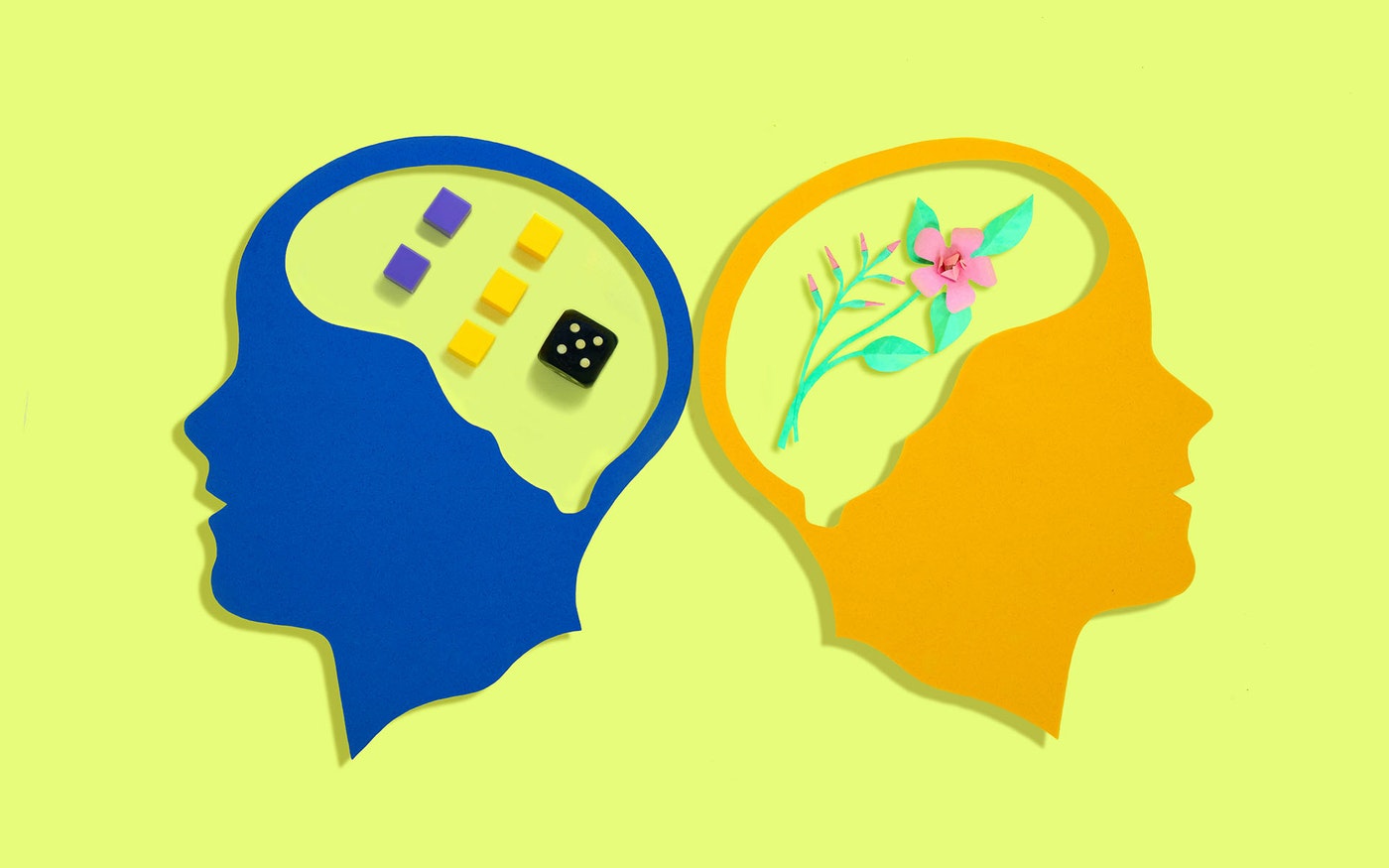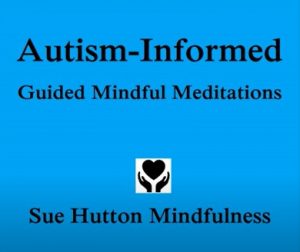Mindfulness and Neurodiversity

Preface
My interest in this subject stems from my experience of introducing autistic adults to mindfulness. This experience was not extensive but was sufficient to stimulate personal research which has included locating thinkers, researchers, practitioners and finding resources.
This page is a collection of resources and references that, I hope, will be of use to anyone looking for mindfulness resources better suited to their mind’s particular nature. It is also a source of information and alternative practices for participants in the mindfulness courses I teach.
It should also be of interest to my fellow mindfulness teachers many of whom, like me, are trying to understand how mindfulness can be taught so that that it is as accessible to as many people as possible.
This page is a “work in progress”. I welcome recommendations or comments that will help improve the information. Email me, Bob Chase at bob@mindfulinthecity.co.uk The inclusion of a resource or piece of information on this page does mean I necessarily recommend it or agree with its content.
Definitions
"Neurodiversity is the diversity of human brains and minds, the infinite variation in neurocognitive functioning within our species. The Neurodiversity Paradigm is an emergent paradigm in which neurodiversity is understood to be a form of human diversity that is subject to the same social dynamics as other forms of diversity"
Nick Walker https://autisticuk.org/neurodiversity/
Neurodiversity - “recognizing and celebrating the diversity of brain make-ups instead of pathologizing some as normal and others as abnormal.”
Jenna Nuremberg from "Divergent Mind: Thriving in a World That Wasn’t Designed for You”
Mindfulness, neurodiversity and autism
“Mindfulness has something to offer the world. Neurodiversity has something to offer mindfulness. Let’s imagine together how a more inclusive mindfulness culture can contribute to a more inclusive world, one that can be truly accessible and beneficial to all” Sue Hutton
I have found that the larger body of knowledge is related to autism and mindfulness. This is not surprising given the diversity within the “spectrum” of autism itself.
Secular mindfulness offers a route to help us better understand the working of our minds. It offers tools and practices that help us to lessen the suffering we cause ourselves through misunderstanding our minds.
I would contend that this applies to all minds, however neurodiverse. The key issue is not whether it is useful (given the ample scientific evidence) but rather why is it not being taken up more widely by people who may disproportionately suffer from the some problems that mindfulness is pretty good at addressing? I am thinking here particularly of chronic stress, anxiety and depression that are often a common dimension of life for people on the spectrum.
The answer seems to lie in the way that secular mindfulness is taught. Group settings, for example, can often be challenging for people with Autism. The teaching practices also assume the ability to visualise and the ability to readily interpret sensations/feelings in the body (interoception). These abilities are, however, not universal: 2% of the population are not visual thinkers.
This deficiency was not so clear or urgent when mindfulness and meditation was an esoteric pursuit for the few. Now that mindfulness is reaching deeper into our society through schools, work places, etc., it is becoming vital to make the learning of mindfulness accessible to everyone who wants to try it.
How to do this effectively is a "problem" that still to be fully explored and addressed. The good news is that neurodiverse practitioners, aware teachers and researchers are slowly building knowledge and resources, and challenging the orthodoxy that all minds are the same and that mindfulness can only be taught in one way. Like many others, I am just at the beginning of that journey.
Articles
“Learning to Celebrate Neurodiversity in Mindfulness” Sue Hutton Oct 2020
Developing more inclusive teaching practices can go a long way to making mindfulness accessible, especially for communities of neurodiversity.
Resources
“3 Mindfulness Practices for Neurodiverse Meditators” We don’t all meditate the same way—nor do we need to. Sue Hutton offers helpful tips and practices, informed by the autism community, to make mindfulness practice truly accessible.
11 Autism Informed (Audio) Guided Mindfulness Practices
There are few freely available online resources that are specifically designed to be accessible. To her credit Sue Hutton has created, to my knowledge, some of the only internet available guided practices.

These are links to series of audio guided mindfulness practices available on YouTube.
They were co-created by Sue Hutton with Daniel Share-Strom and Maxine Share from Autism Goggles. They have been tested with young people and adults with Autism as part of research project led by Dr Yona Lunsky of the Azrieli Adult Neurodevelopmental Centre (Ontario, Canada)
Please feel free to experiment with these practices. Comments and feedback welcome
- About Autism-Informed Mindfulness - https://youtu.be/hj-K8br6TFg
- Figure 8 Breath Meditation - https://youtu.be/hj-K8br6TFg
- Body Scan (Intro) - https://youtu.be/cAdm6qAdwxQ
- Body Scan Meditation https://youtu.be/MKJU5kE3a60
- Watching My Thoughts (Intro) https://youtu.be/0B6JAWPRZoY
- Watching My Thoughts Meditation - https://youtu.be/qYt_Dus98ac
- Progressive Relaxation Meditation https://youtu.be/8JRv87bvK3w
- Hand Breath Meditation https://youtu.be/VHm50HWIXwE
- Lotus Breath Meditation https://youtu.be/053GzGgrFik
- Ocean Breath Meditation https://youtu.be/imOPotZytAc
- Kindness Meditation https://youtu.be/aZ1LHWvhHGs
Apps
Autism Apps is a website managed by Autism Association of Western Australia. They carry out reviews and make recommendations. Search for mindfulness identified 5 apps they have reviewed including:
Books
Meditation for Aspies: Everyday Techniques to Help People with Asperger Syndrome Take Control and Improve their Lives by Ulrike Domenika Bolls (2013)
Asperger's Syndrome and Mindfulness: Taking Refuge in the Buddha by Chris Mitchell (2008)
“Mindfulness in adults with autism: a guide for care providers and people with ASD” (Dutch Language) by Annelies Spek (2010)
Mindful Living with Asperger's Syndrome: Everyday Mindfulness Practices to Help You Tune in to the Present Moment by Chris Mitchell (2013)
Unclouded by Longing: Meditations on Autism and Being Present in an Overwhelming World by Christopher Goodchild. Foreword by Thomas Moore (2017)
A Mindfulness Intervention for Children with Autism Spectrum Disorders: New Directions in Research and Practice (Mindfulness in Behavioural Health) by Yoon-Suk Hwang and Patrick Kearney (2016)
Websites
Sue Hutton (mindfulness teacher in Canada) "I've taught mindfulness in developmental services, in the education system, in cancer care services, and in the prison system. I also lead clinical groups with autistic adults and their caregivers for research in mindfulness for neurodevelopmental disabilities."
https://www.suehuttonmindfulness.com/
Papers & Research
"66% of participants who tried the online (mindfulness) tools (apps) completed (the course) .. suggesting that such tools are, in principle, acceptable to many autistic adults"
Misc. Academic articles (no link available)
Ghaziuddin, M., Ghaziuddin, N, & Greden, J. (2002). Depression in persons with autism: Implications for research and clinical care. Journal of Autism and Developmental Disorders
Singh, N.N., Lancioni, G.E., Manikam, R., Winton, A.S.W., Singh, A.N.A., Singh, J., & Singh,(2011) A mindfulness-based strategy for self-management of aggressive behaviour in adolescents with autism. Research in Autism Spectrum Disorders
Singh, N.N., Lancioni, G.E., Singh, A.D.A., Winton, A.S.W., Singh, A.N.A., & Singh, J. (2011). Adolescents with Asperger syndrome can use a mindfulness-based strategy to control their aggressive behavior. Research in Autism Spectrum Disorders,
Spek, A.A., Van Ham, N., & Nyklíček, I. Mindfulness-based stress reduction in adults with an autism spectrum disorder, a randomized controlled trial. Submitted.
Weiss, J.A., & Lunsky, Y. (2010). Group cognitive behaviour therapy for adults with Asperger syndrome and anxiety or mood disorder: a case series. Clinical Psychology and Psychotherapy, 17, 438-446.